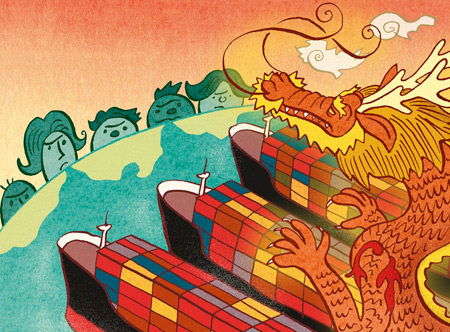“The best argument against democracy is a five-minute conversation with the average voter” - Winston Churchill.
Democracy by its principles is a simple form or process of electing a leadership for any country. Every persons vote that is their voice counts, and the results are tabulated to declare a winner via simple majority. That being said, however, with a particular focus on Pakistan democracy has been a failed model.
I say failed because absolute democracy does not exist anywhere in the world. And, often if one form or shape of it is applied to a nation state when being replicated from another leads to more problems then solutions.
Take the example of the Arab Spring so much in vogue in the world today, if you ask the people who were present at Tahrir on day one or those who helped engineer the uprisings in Tunisia, none of them are happy with what the results have brought their nation. The fact is that quasi dictatorship, if providing the basics of human life to citizens, will be preferable any day to a rag tag system that caters to only those who have access to halls of power.
Now lets zoom in from the world view to Pakistan, that has just had in the recent months conducted its second democratic election after five years of an elected government and voted another batch of electable’s into power. It may all look like a very smooth transition on paper yet still all the political parties that fought the election claim massive rigging took place in different districts of the country.
How can elections, in which none of its participants concede victory without alluding to rigging, be free and fair? Even if the majority of rigging claims are cast asunder under the guise of system errors or insignificant on actual results the question still remains: what has the process brought Pakistan?
This is obviously not to backup any form of dictatorship or claim that we as a nation should not be having democratic elections but merely to point out a simple fact. The fact that we need a tailored form of democracy to our own local peculiarities is something we both need to recognize and put into implementation if we are to rise from the current precipice we stand on.
Merely going through the motions of an electoral process with the current crop of leaders, having just as many smears on them as the batch we put out to pasture, doesn’t achieve much. In fact, it is preventing the bright and the young from ever having a chance to play a role in Pakistan’s future. An ideal they inspire to from time to time but are failing to achieve because they are looking for a Messiah rather then able leadership in the party of their choice.
What then can be the Pakistani version of democracy or electoral process that can ensure us to separate the rot from the rest? Perhaps it is time to recognize the fact that it will take us years to shape that very system I speak of rather then expect the newly elected government to deliver everything in the five years they get. Perhaps it is also time to understand that no government can solve the problems we have as a nation all in one go and that either we need to give them more time or be ready to make sacrifices as a country rather then expect a magic wand solution.
Many analysts in Pakistan will say that one cannot blame the process for the results, but to me unless we have a process which guarantees more access to independents rather then parties in this country coupled with reasonable expectations from the voters we will not be able to go forward. Unless we make sure that Pakistanis don’t have to “elect” an “electable” but can give power to a common man we are forever doomed in this vicious cycle of old wine in a new bottle.
WRITTEN BY FAISAL KAPADIA


